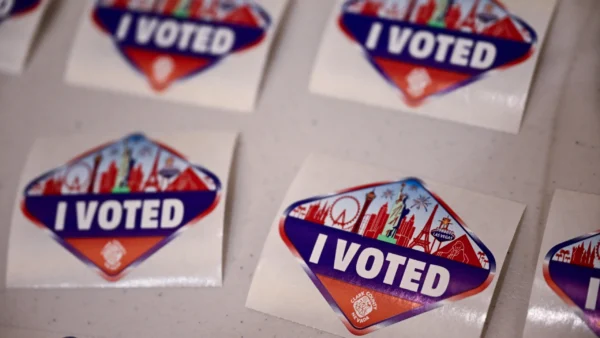Nevada
United States v. Aguilar
The Department of Justice (“DOJ”) sued Nevada demanding the release of its full, unredacted voter file, which includes the highly sensitive and personal data of every voter in the state. This suit appears to be part of DOJ’s effort to build a national voter database without congressional authorization, improperly question the validity of state voter rolls, and intimidate eligible voters in Nevada and around the country.
Status: Ongoing
View Case
Visit ACLU of Nevada
All Cases
10 Nevada Cases

Nevada Supreme Court
Aug 2025
Capital Punishment
Ybarra v. Warden
This case presents the question of whether the execution of a capital defendant with serious mental illness violates Article I, section 6 of the Nevada Constitution, which prohibits cruel or unusual punishment. The ACLU’s Capital Punishment Project and State Supreme Court Initiative, along with the ACLU of Nevada, filed an amicus brief arguing that a plain reading of Article I, section 6 of the Nevada Constitution provides broader protections than the Eighth Amendment and should be interpreted to establish a categorical exemption from execution for this population.
Explore case
Nevada Supreme Court
Aug 2025

Capital Punishment
Ybarra v. Warden
This case presents the question of whether the execution of a capital defendant with serious mental illness violates Article I, section 6 of the Nevada Constitution, which prohibits cruel or unusual punishment. The ACLU’s Capital Punishment Project and State Supreme Court Initiative, along with the ACLU of Nevada, filed an amicus brief arguing that a plain reading of Article I, section 6 of the Nevada Constitution provides broader protections than the Eighth Amendment and should be interpreted to establish a categorical exemption from execution for this population.

Nevada
Apr 2025
Immigrants' Rights
Viloria Aviles v. Trump
Emergency lawsuit filed in federal court to again halt removals under the Alien Enemies Act for people within that court’s judicial district.
Explore case
Nevada
Apr 2025

Immigrants' Rights
Viloria Aviles v. Trump
Emergency lawsuit filed in federal court to again halt removals under the Alien Enemies Act for people within that court’s judicial district.

Nevada
Oct 2024
Voting Rights
Citizen Outreach Foundation v. Portillo
On the eve of the November 2024 presidential election, a third-party organization has challenged about 20,000 voters in Clark County, Nevada on the basis of purportedly improper residency. When Clark County rightly declined to process these challenges as improper under Nevada law, the third-party organization sued to compel the county to act on the challenges. The ACLU Voting Rights Project and the ACLU of Nevada have moved to intervene in the case to prevent mass disenfranchisement of Clark County voters mere weeks out from the 2024 general election.
Explore case
Nevada
Oct 2024

Voting Rights
Citizen Outreach Foundation v. Portillo
On the eve of the November 2024 presidential election, a third-party organization has challenged about 20,000 voters in Clark County, Nevada on the basis of purportedly improper residency. When Clark County rightly declined to process these challenges as improper under Nevada law, the third-party organization sued to compel the county to act on the challenges. The ACLU Voting Rights Project and the ACLU of Nevada have moved to intervene in the case to prevent mass disenfranchisement of Clark County voters mere weeks out from the 2024 general election.

Nevada
Oct 2024
Voting Rights
Citizen Outreach Foundation v. Burgess
On the eve of the November 2024 presidential election, a third-party organization has challenged about 11,000 voters in Washoe County, Nevada on the basis of purportedly improper residency. When Washoe County rightly declined to process these challenges as improper under Nevada law, the third-party organization sued to compel the county to act on the challenges. The ACLU Voting Rights Project and the ACLU of Nevada have moved to intervene in the case to prevent mass disenfranchisement of Washoe County voters mere weeks out from the 2024 general election.
Explore case
Nevada
Oct 2024

Voting Rights
Citizen Outreach Foundation v. Burgess
On the eve of the November 2024 presidential election, a third-party organization has challenged about 11,000 voters in Washoe County, Nevada on the basis of purportedly improper residency. When Washoe County rightly declined to process these challenges as improper under Nevada law, the third-party organization sued to compel the county to act on the challenges. The ACLU Voting Rights Project and the ACLU of Nevada have moved to intervene in the case to prevent mass disenfranchisement of Washoe County voters mere weeks out from the 2024 general election.